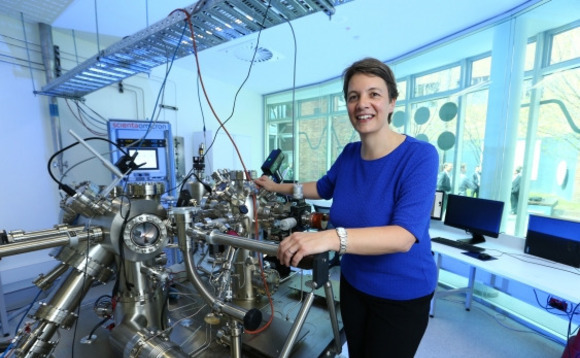
Australia's Silicon Quantum Computing raises $34m

Australian quantum computing company Silicon Quantum Computing (SQC) has raised a AUD 50m (USD 34m) Series A round featuring Telstra, falling short of a AUD 130m target.
SQC was set up in 2017 as a joint venture between Telstra, the Australian government, the University of New South Wales (UNSW), and Commonwealth Bank of Australia. At the time, they provided a AUD 83m seed round. All parties re-upped in the Series A, which values the company at AUD 195m.
It comes as Australia has emerged as a hotspot in a groundswell of quantum computing investment activity, much of which has attracted generalist private investors.
Earlier this year, Australia's Quantum Brilliance raised a USD 18m round featuring US-based GPs Ultratech Capital Partners and CM Equity Partners. Meanwhile, Q-Ctrl has secured more than USD 50m in the past two years from the likes of Square Peg Capital and Salesforce Ventures. Other players in the local scene include Diraq, another UNSW spinout, and VC-backed QuintessenceLabs.
SQC is most notable for being founded and led by eminent computer scientist Michelle Simmons (pictured), a professor at UNSW who was named Australian of the Year in 2018 for her work in quantum computing. She is known in scientific circles for demonstrating the feasibility of "atomic electronics," a technical breakthrough in quantum computing.
"Clearly venture capital at the moment is just a lot more expensive. If we were to have closed at a higher value, we would have had to give away more of the company, and the existing shareholders obviously thought the company is too valuable to give away," Simmons told InnovationAus, a local tech sector publication.
"So we turned around and decided to raise enough capital to let us get those next technical milestones. [This] will hopefully give us another up-value round."
SQC claims its quantum circuitry is 200x faster than existing qubit gates. A qubit, or quantum bit, represents the rudiments of quantum computing's advantage over traditional binary computing technologies in that it can represent ones, zeros, or both at the same time.
The company's longer-term plans include developing a programmable device based on a 100-qubit quantum processor. For context, Quantum Brilliance recently provided a two-qubit prototype machine to a large Australian supercomputing centre last year that allows the facility to simulate about 40 qubits of processing capacity.
Latest News
Asian GPs slow implementation of ESG policies - survey
Asia-based private equity firms are assigning more dedicated resources to environment, social, and governance (ESG) programmes, but policy changes have slowed in the past 12 months, in part due to concerns raised internally and by LPs, according to a...
Singapore fintech start-up LXA gets $10m seed round
New Enterprise Associates (NEA) has led a USD 10m seed round for Singapore’s LXA, a financial technology start-up launched by a former Asia senior executive at The Blackstone Group.
India's InCred announces $60m round, claims unicorn status
Indian non-bank lender InCred Financial Services said it has received INR 5bn (USD 60m) at a valuation of at least USD 1bn from unnamed investors including “a global private equity fund.”
Insight leads $50m round for Australia's Roller
Insight Partners has led a USD 50m round for Australia’s Roller, a venue management software provider specializing in family fun parks.







